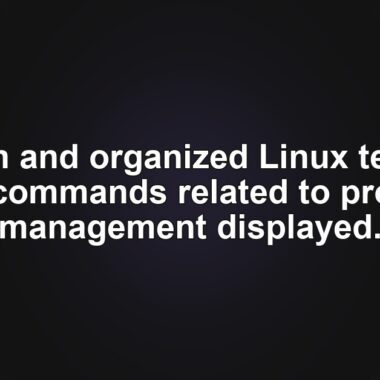![]()
Mastering VPS Hosting for Your Website: A Comprehensive Guide
Virtual Private Server (VPS) hosting is a key option for those seeking more control and resources for their website compared to shared hosting.
The Differences Between Shared and VPS Hosting
Shared and VPS hosting both use one physical server to host multiple websites. This approach is cost-effective, resulting in prices lower than dedicated hosting or cloud hosting services. However, there are significant differences between the two.
A web server has limited system resources available, such as RAM, CPU power, and disk space. In a shared hosting environment, multiple clients use the resources of a single physical server, which can create bottlenecks and slow down your site.
- When the hosting provider sets up too many websites on the same server space.
- When a website on the server is getting too much traffic and taking up more resources.
Choosing a reputable web hosting provider can mitigate these issues. However, VPS hosting offers a solution by compartmentalizing the server resources for each client, acting like individual servers. This separation provides more reliability and control.
In a shared hosting setup, the server is pre-configured by the host, offering limited control to users, who are provided with a user-friendly control panel. This setup is ideal for beginners. In contrast, VPS hosting provides server root access, enabling users to install custom applications and operating systems, such as Ubuntu or CentOS.
While shared hosting is more affordable and user-friendly, VPS hosting requires more technical expertise but offers greater resources and customization, making it ideal for web applications with specific requirements.
When You Should Move From Shared Hosting to VPS
As your website grows and receives more traffic, shared hosting might become inadequate. Here are some signs that it might be time to switch to VPS hosting:
- The site receives at least 100-200 visits per day.
- There’s a sustained increase in the site’s bounce rate.
- The website speed is getting slower, or it is starting to experience downtime.
Security and complete control over the server are significant advantages of VPS hosting, especially for eCommerce sites handling sensitive data. If your budget allows, VPS hosting can be a worthwhile investment to ensure better performance and security for your website.
For example, Hostinger offers affordable VPS hosting plans starting at $4.99/month, providing excellent value for the resources and control you gain.
How to Get Started With VPS (In Just 3 Steps)
If you decide to transition your website from shared hosting to VPS, follow these steps:
1. Choose the Right Type of VPS
VPS hosting providers offer a variety of plans. Understanding your resource needs is crucial when selecting a plan. For instance, Hostinger offers KVM-based plans that provide excellent performance and stability, suitable for different levels of website management.
2. Learn How to Connect to VPS Using SSH
Connecting to your VPS requires an SSH client. If you are using a Unix-based system, you can connect directly from the command line. Windows users can use software like PuTTY to establish a connection. Ensure you have your server’s IP address, SSH port, username, and password ready.
3. Use the Command Line to Manage Your VPS
Managing a VPS involves using the command line for server tasks. Familiarize yourself with basic commands like ls, mv, cd, mkdir, and nano to navigate and manage your server effectively.
With full root access, you can install applications and customize settings to optimize your website’s performance.
Conclusion
VPS hosting offers complete control over your server at a cost lower than dedicated hosting, making it an excellent choice for those who need more resources and customization options. With the right plan, such as those offered by Hostinger, you can enhance your website’s performance and security.
Remember, hosting a website on VPS requires a bit more technical know-how, but the benefits in terms of control and performance are well worth the effort.
How to Host a Website on VPS FAQs
Is VPS Good for a Website?
Yes, VPS is often a good choice for websites needing more control and resources compared to shared hosting, leading to improved performance and scalability.
What Are the Benefits of Using a VPS to Host a Website?
VPS hosting offers increased performance, scalability, customization, dedicated resources, improved security, and root access, balancing cost-effectiveness with higher control.
Can I Host a WordPress Website on VPS?
Yes, you can host a WordPress website on a VPS. Many providers offer easy installation options, and with VPS, you have full control over server optimization for better performance.
👉 Start your website with Hostinger – get fast, secure hosting here 👈
🔗 Read more from MinimaDesk:
- How to Disable xmlrpc.php in WordPress: A Step-by-Step Guide
- The Ultimate Guide to WP-Content: Access, Upload, and Hide Your WordPress Directory
- How Many WordPress Plugins Are Too Many? Optimize Your Site for Success
- Mastering WordPress: Solving Broken Permalinks Effortlessly
🎁 Download free premium WordPress tools from our Starter Tools page.








